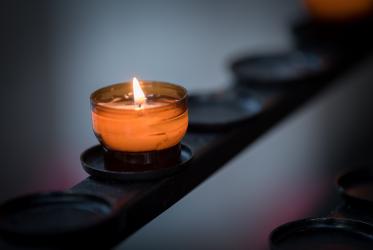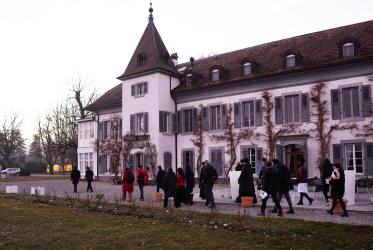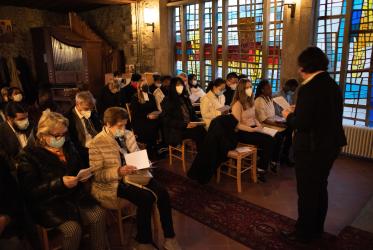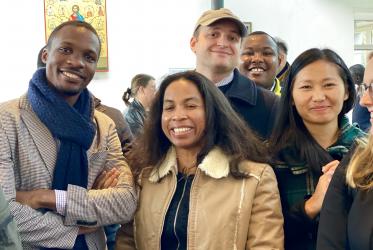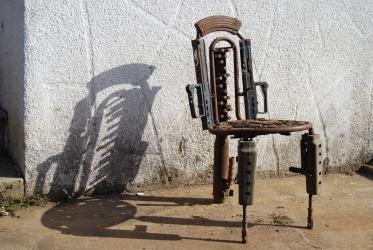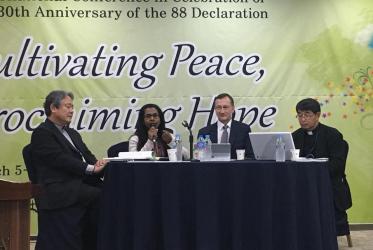Displaying 1 - 20 of 37
11 September 2023
Bossey student Carolina Zamorano reflects on study visit to Rome
02 February 2022
Applications open anew for Bossey online course in ecumenism
13 January 2022
The cry of the Papuans in Indonesia
14 November 2019
New website launched for Bossey Hotel and Conference Centre
12 September 2019
WCC pays tribute to ecumenist pioneer
08 May 2019
Paving the way for ecumenical studies, learning English in Bossey
24 September 2018
#WCC70: Nathan Söderblom, ecumenical pioneer
29 August 2018
WCC welcomes “powerful sign of hope” on Korean Peninsula
08 March 2018

